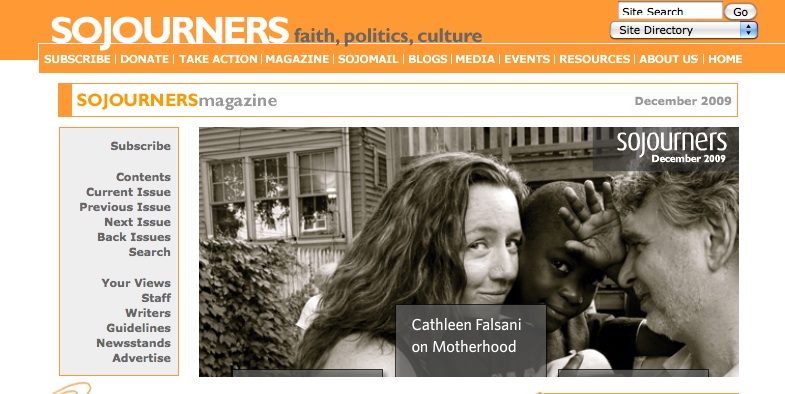The Pastor's Dilemma
Sojourners Magazine, 12/1/2009, By Dr. Joel C. Hunter
Recently, my church's board of elders and I were discussing people who had left our fellowship because of their perceptions of my "political activities." As I handed them an outline of what I believe the Bible says about various social issues (creation care, immigration, peacemaking, poverty, etc.), I said, "We know this is not about politics. This is about expressing the Christian witness in the public square as a part of what it means to be a mature Christian." To their credit and my encouragement, they said, in essence, "We agree. And we will take the lead, but it can't be political or partisan."
Most of us went into ministry because we wanted to be both voices and vessels of God's love to others through Jesus Christ. But there is congregational pushback when we tie voices and vessels to votes. And that link is not only a danger, but a necessity to make "witnessing" distinct from "politicking."
For pastors to be involved in addressing the social issues of the day in a prophetic and compassionate way, we must make three decisions:
1. We must decide we will have courage. Many of our congregation members will misunderstand both our motivations and the need to talk of such things. Jesus didn't do us any great favors when he commanded us to "Render unto Caesar what is Caesar's, and unto God what is Gods" (Matthew 22:21). We'd love to only address the second part because the first part implies complicity with unpopular government. To be perfectly honest, such activity could cost some of us our jobs. But if our fear diminishes the fullness of the gospel's love and concern, if others go on suffering so that we can be more secure, what kind of ministry do we have?
2. We must decide that we will make our voice on social issues one that directly links the Bible and the life of Christ to the issue. Individual Christian citizens are free to have personal opinions; pastors are not. Pastors are always seen as spiritual leaders, so not only must we be informed about what will help the most and cause the fewest unintended negative consequences, but we must be clear that what we are doing is an expression of the gospel.
3. We must not be distracted by personal attacks, personal links, or the temptation to defend ourselves. If the cross teaches us anything, it teaches us sacrifice: "He saved others; he cannot save himself" (Matthew 27:42). Love costs. If you are for creation care, you will be linked to people with whom you would vehemently disagree. If in your judgment one side of an issue is more in line with what Jesus would do, then you will be accused of being "in the tank" for whatever politician takes that side and you will be accused of being against the politicians who don't. We have only one Person that we need to consider; One from whom we long to hear, "Well done."
The pastor's dilemma starts with this question: How can we address the public-square issues as a small part of what we do, and keep it about loving people instead of about "taking a stand"?
The questions many pastors are tempted to ask themselves include, "Is it really necessary that I address our country's responsibility for the needy? And if I do speak out for the vulnerable in risky ways, is my next conversation with the public going to begin with the question, '"Do you want fries with that?"
-Dr. Joel C. Hunter is senior pastor of Northland- A Church Distributed in Orlando, Florida.





